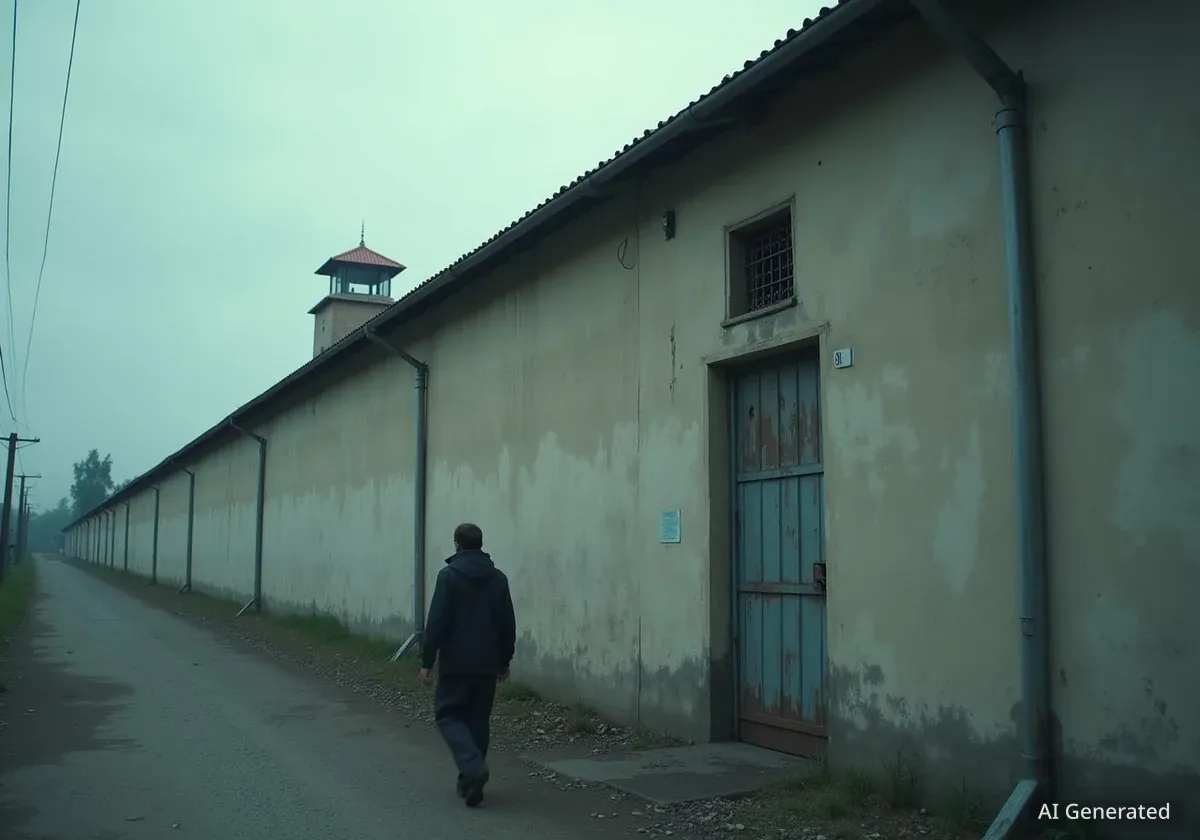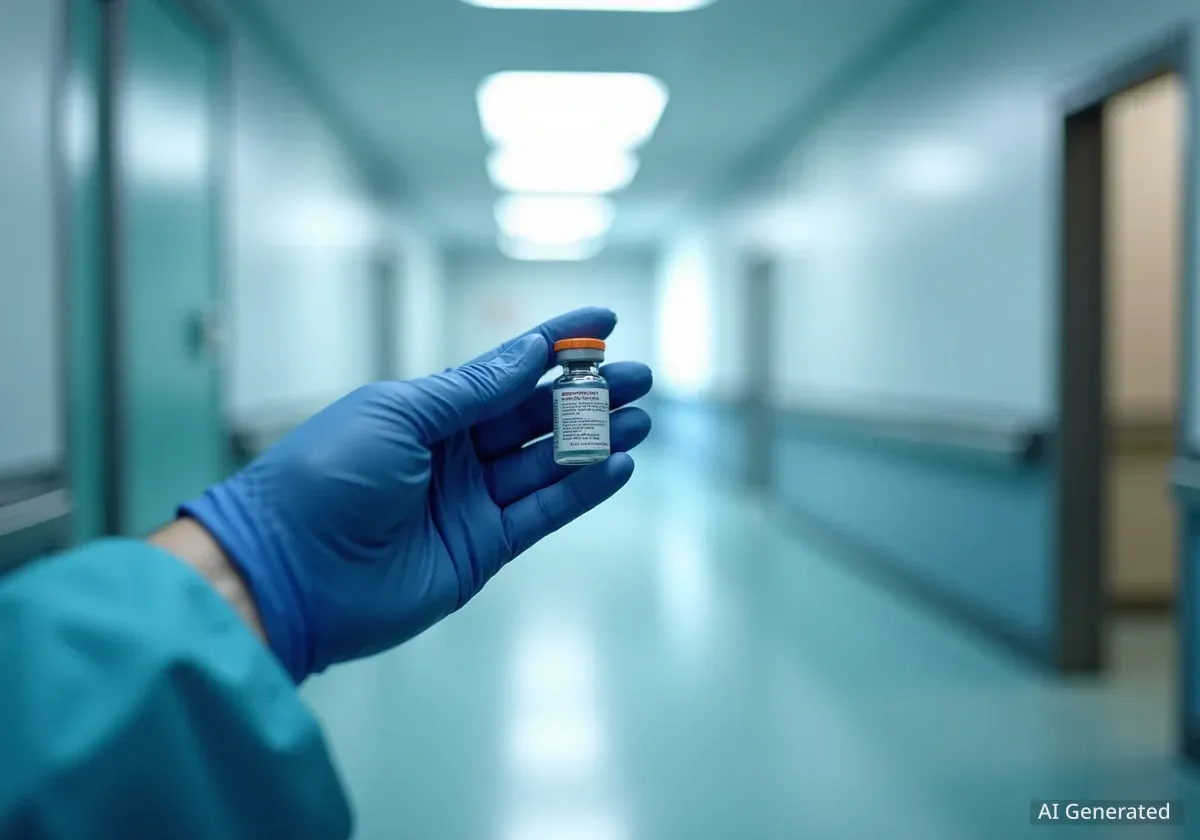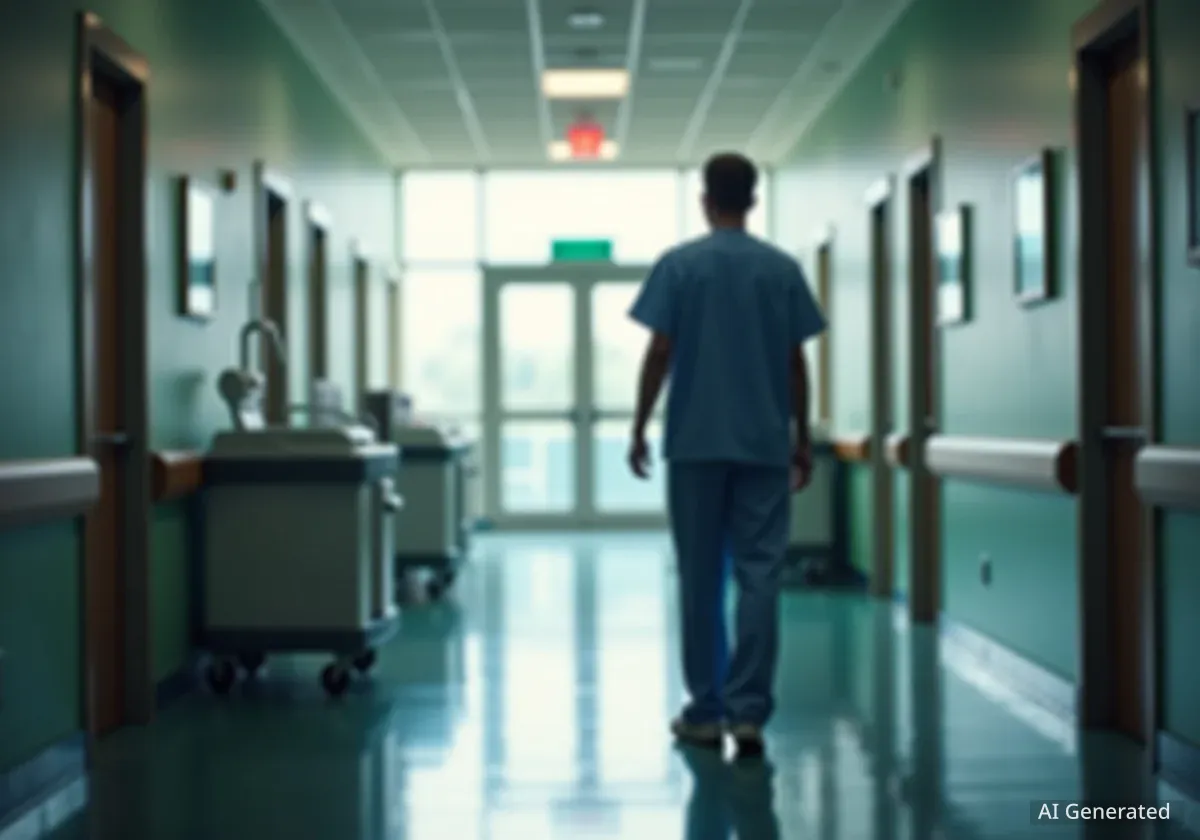A 44-year-old man died at HMP Altcourse just nine days after being remanded, hours after telling a prison officer he felt "really ill" and was too tired to collect his medication. A subsequent investigation by the Prisons and Probation Ombudsman (PPO) concluded that the care he received was of a good standard.
Anthony Kennedy was found unresponsive in his cell on February 12, 2023. A post-mortem examination identified the cause of death as the combined effects of multiple underlying health conditions, including morbid obesity, an enlarged heart, pneumonia, and mixed drug toxicity.
Key Takeaways
- Anthony Kennedy, 44, died on February 12, 2023, nine days after arriving at HMP Altcourse.
- On the morning of his death, he reported feeling "really ill" to a prison officer.
- A post-mortem found multiple contributing factors, including pneumonia, heart conditions, and drug toxicity.
- The Prisons and Probation Ombudsman (PPO) report stated the clinical care Mr. Kennedy received was of a good standard.
- Mr. Kennedy had a history of substance misuse and often did not engage with healthcare staff, according to the report.
Timeline of Events at HMP Altcourse
Anthony Kennedy was remanded to HMP Altcourse on February 3, 2023. According to the PPO report, he arrived with a known history of substance misuse and self-harm. Upon entry, he tested positive for several drugs and was prescribed methadone to manage withdrawal symptoms.
Due to his history, he was immediately placed on a suicide and self-harm support procedure, known as ACCT, which required observations twice an hour. However, the report notes that he repeatedly refused to engage with healthcare staff during his first few days at the facility.
Initial Health Concerns
On February 4, staff were unable to conduct an initial mental health assessment due to his non-engagement. The following day, February 5, Mr. Kennedy complained of a stomach ache and requested to see a doctor but would not allow nurses to take his clinical observations.
He was prescribed medication for his stomach ache on February 6. Despite his continued refusal to engage with the mental health team, he was taken off the ACCT procedure on February 7. He changed his mind the next day and met with the team, where he was described as “upbeat and chatty throughout.”
What is an ACCT?
ACCT (Assessment, Care in Custody and Teamwork) is the procedure used in prisons to support individuals who are identified as being at risk of suicide or self-harm. It involves regular observations and multi-disciplinary case reviews to manage the individual's risk.
The Final Days
Following his meeting with the mental health team on February 8, staff decided to stop the twice-hourly checks but continued with regular conversations. The report states Mr. Kennedy did not raise any further concerns over the next couple of days.
CCTV footage showed that Mr. Kennedy's cell door was often open, with other prisoners moving in and out, but nothing suspicious was observed. On February 10, a substance misuse service worker attempted to visit him, but Mr. Kennedy did not engage, and the meeting was rescheduled.
Suspected Illness
On the morning of February 11, an officer noted in the ACCT document that Mr. Kennedy might have COVID-19 and had remained in his cell. Later that day, an entry mentioned he had taken a COVID-19 test, and an officer advised him to take another one the next day. The result of the first test was not recorded.
Timeline: Mr. Kennedy was in HMP Altcourse for a total of nine days before his death, from February 3 to February 12, 2023.
The report details the events of the following morning, February 12. When an officer unlocked his cell, Mr. Kennedy stated he was "too tired to collect his medication and felt really ill." The officer suggested he should take another COVID-19 test later in the day.
Discovery and Medical Emergency
Shortly before midday on February 12, the same officer asked a colleague to check on Mr. Kennedy to see if he wanted his medication. When the second officer arrived at the cell, another prisoner informed them that Mr. Kennedy was unwell but was refusing to take a COVID-19 test.
The officer decided to get a test kit and returned with another colleague to assist. Upon entering the cell, they found Mr. Kennedy unresponsive and could not detect a pulse. They immediately radioed a "code blue," the prison's medical emergency code.
"When the officers went into the cell, they found Mr Kennedy unresponsive, and they could not feel a pulse. They radioed a code blue... and officers began attempts to resuscitate Mr Kennedy."
Healthcare staff arrived shortly after and took over resuscitation efforts. An ambulance crew arrived at 12:12 pm and successfully resuscitated him. However, his heart stopped again while in the ambulance. Despite further attempts to revive him, he was pronounced dead at the hospital at 1:26 pm.
Post-Mortem and Ombudsman's Findings
A post-mortem report was conducted to determine the cause of death. The pathologist concluded that Mr. Kennedy died from the combined effects of several serious health issues.
- Morbid obesity
- Cardiomegaly (an enlarged heart)
- Pneumonia
- Pulmonary emphysema
- Mixed drug toxicity
The pathologist noted that while none of the prescription drugs were at significantly elevated levels, their combination may have had a depressant effect on his breathing and central nervous system. The report also highlighted the "unknown consequences of this unauthorised combination of medication."
Conclusion of the PPO Report
The PPO report addressed concerns raised by Mr. Kennedy's family about the adequacy of the care he received. The investigation concluded that staff had made consistent efforts to support him.
The clinical reviewer for the PPO stated that the care Mr. Kennedy received was of a "good standard" and was equivalent to what he would have received in the community. The report acknowledged his frequent non-compliance but noted that staff continued to attempt to engage with and monitor him throughout his time at HMP Altcourse.
The report concluded: "We are satisfied that he was offered an appropriate level of care by prison and healthcare staff."





